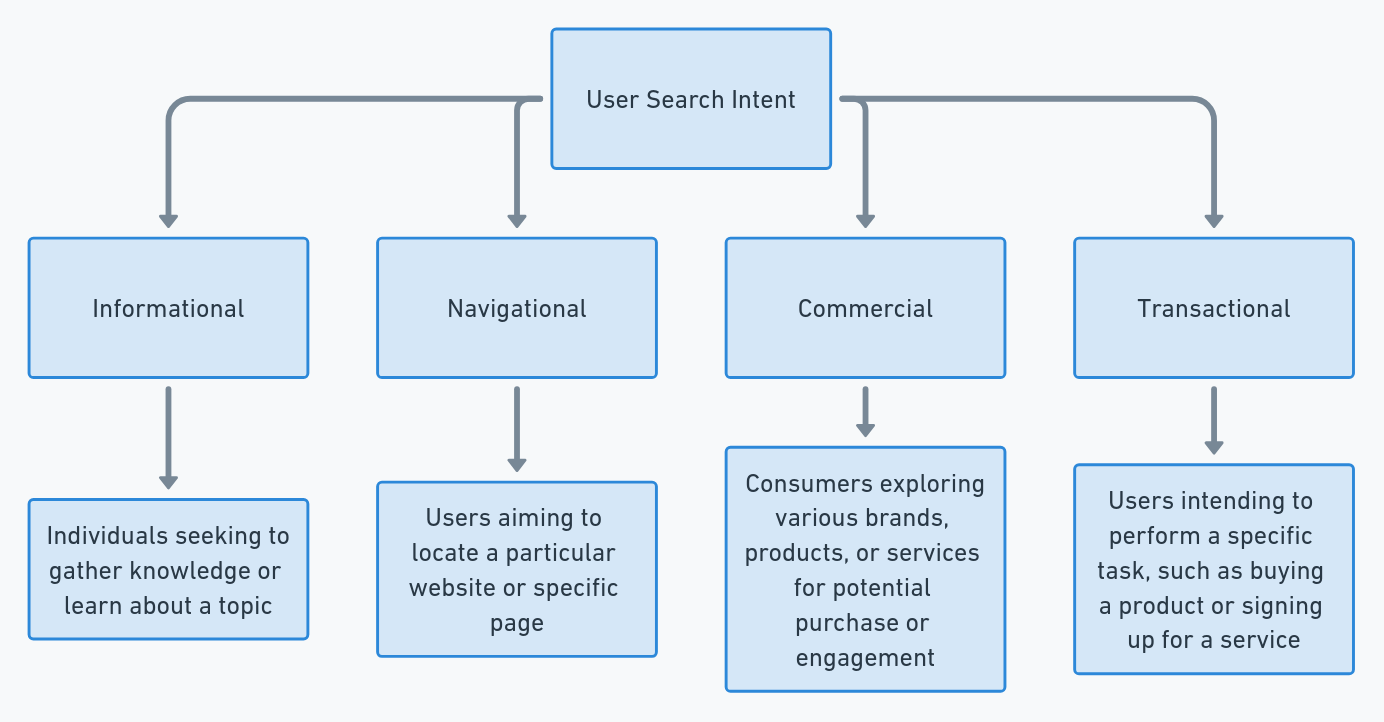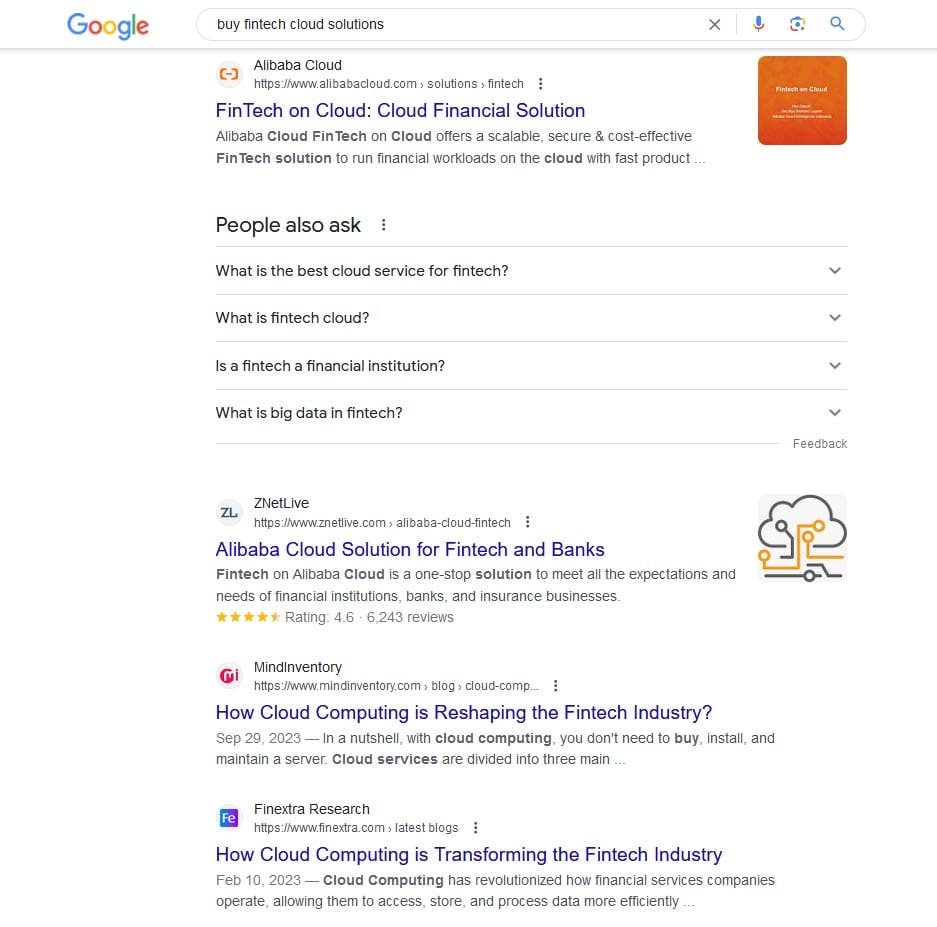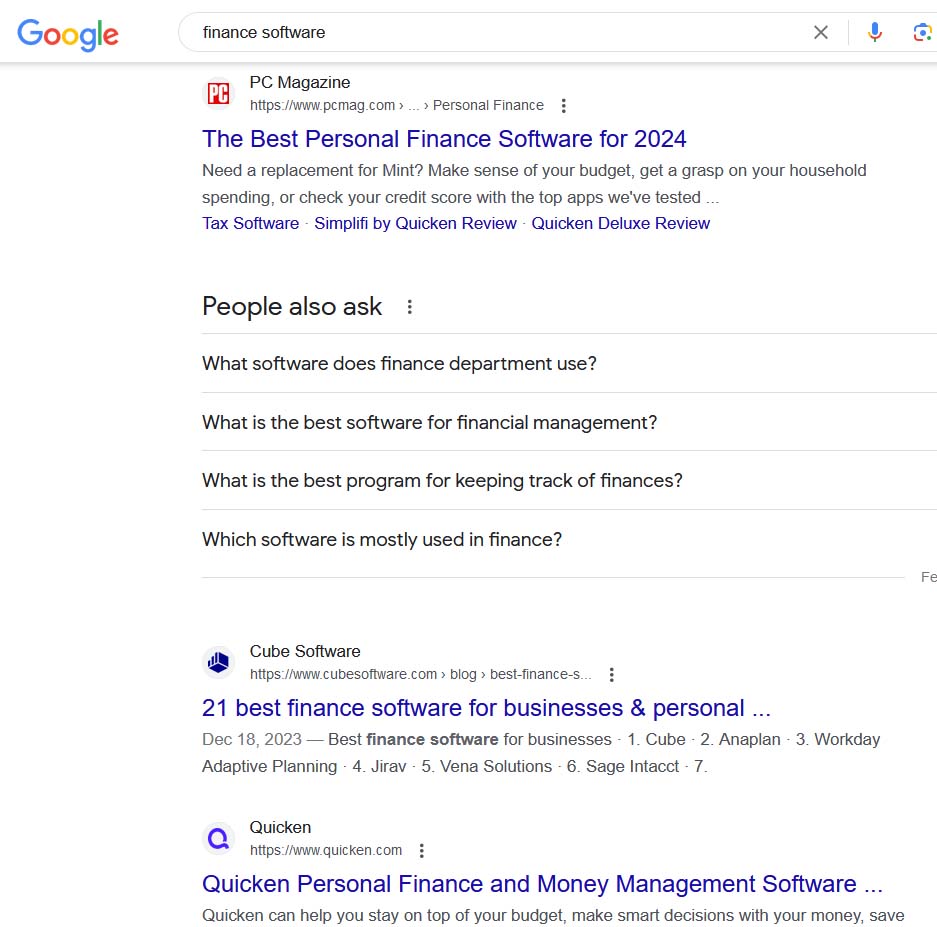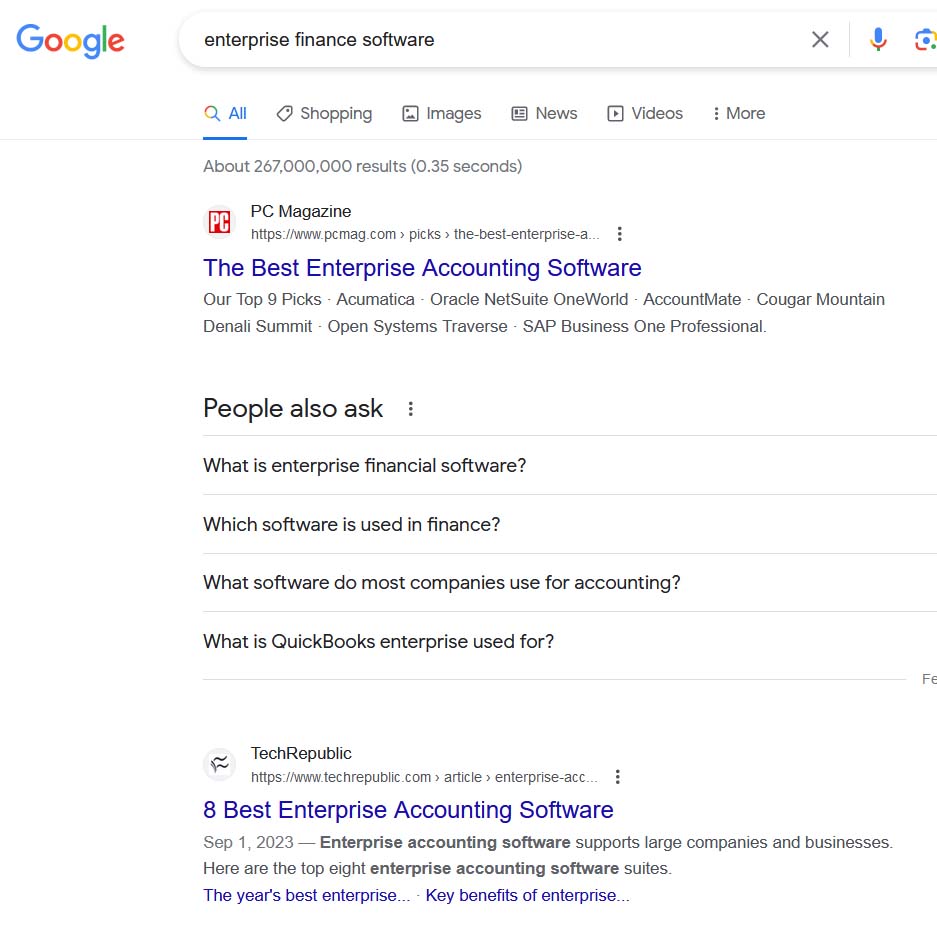Welcome to the dynamic world of B2B marketing, where mastering the art of keyword research can be a game-changer for your business. If you’re eager to enhance your marketing strategies, understanding the nuances of B2B keyword research is a pivotal step. This guide is your gateway to mastering this essential skill.
We’re set to explore the intricacies of effective B2B keyword research and the theory behind the selection process. From its significance in shaping your content strategy to recognizing the specific characteristics that set B2B keywords apart, we’ve got you covered. Plus, we’ll jump into deciphering searcher intent, providing you with actionable insights and methods to refine your keyword research techniques.
Get ready to unlock the full potential of B2B keyword research and transform your approach to SEO and growth marketing.
Table of Contents
ToggleKey Takeaways
- Accurate keyword research is crucial for optimizing B2B content and driving targeted traffic to the website.
- Understanding searcher intent behind keywords is essential for effective keyword research.
- B2B keyword research should focus on industry-specific jargon, long-tail keywords, and solution-focused keywords.
- B2B web searches require more specific and detailed information, targeting qualified leads and considering the needs of multiple decision-makers.
Understanding B2B Keywords
Definition of B2B Keywords
B2B keywords are search queries used by professionals and businesses to find services, products, or information relevant to their industry. These keywords are typically more niche and targeted compared to B2C keywords, often reflecting a higher level of specificity and industry jargon.
Differences between B2B and B2C Keywords
The main discrepancy lies in intent and complexity. B2B search terms are often aimed at longer sales cycles and specific industry needs, while B2C keywords tend to be more general and aimed at quick purchasing decisions.
Why Keyword Research Accuracy Is Important
Accurately conducting keyword research is essential for optimizing your B2B content and driving targeted traffic to your website. In the world of B2B keyword research, it’s not just about finding the right keywords, but also understanding the searcher’s intent behind those keywords.
By focusing on bb keyword research and keyword research for bb, you can uncover the specific terms and phrases that your potential customers are using when searching for products or services in your industry.
When you accurately conduct keyword research, you gain valuable insights into the needs and desires of your target audience. By understanding the bb searcher intent, you can create content that aligns with their goals and provides the information they’re looking for. This not only improves your website’s visibility in search engine results but also increases the chances of attracting qualified leads.
Moreover, accurate keyword research helps you stay ahead of your competition. By identifying the keywords that are driving traffic to your competitors’ websites, you can optimize your own content and outrank them in search engine rankings. This gives you a competitive edge and allows you to attract more potential customers to your website.
Unique Attributes of Keyword Research for B2B
Keyword research for B2B content requires a unique approach to uncover the specific terms and phrases that resonate with your target audience. In the B2B space, the priorities, needs, and language of businesses differ significantly from those of individual consumers.
To effectively conduct keyword research for B2B, consider the following:
- Industry-specific jargon: B2B audiences often use industry-specific terminology. Understanding and incorporating these terms into your keyword strategy can help you connect with your audience and establish credibility.
- Long-tail keywords: B2B buyers tend to be more specific in their searches, using longer and more detailed phrases. Targeting long-tail keywords can increase the chances of attracting high-quality leads.
- Solution-focused keywords: B2B buyers are typically looking for solutions to their business problems. Focus on keywords that emphasize the benefits and solutions your products or services offer.
- Competitor analysis: Analyze the keywords your competitors are targeting to gain insights into their strategies. This can help you identify gaps and opportunities in your own keyword research.
- Keyword intent: Consider the intent behind the keywords your B2B audience is using. Are they looking for information, comparing products, or ready to make a purchase? Tailor your keyword strategy accordingly.
- Overlapping intent: Where both B2C and B2B buyers may use the same or similar search queries to find products in related industries.
What Is Keyword Intent?
“Keyword intent” refers to the purpose or goal behind a user’s search query when using a search engine. It’s an essential concept in search engine optimization (SEO) and digital marketing, as understanding the intent behind keywords helps in creating content that matches what the user is looking for. There are typically four main types of keyword intent:

Informational Intent: The user is looking for information or answers to questions. These searches often start with “what,” “how,” “why,” etc. For example, “how to tie a tie.”
Navigational Intent: The user is trying to get to a specific website or page. Instead of typing the URL directly into the address bar, they use a search engine with the name of the site or brand. For example, “YouTube” or “Facebook login.”
Commercial Intent: This is a blend of informational and transactional intent. The user intends to buy in the future but is currently looking for more information or is comparing options. Searches might include “best laptops 2024” or “iPhone vs. Android comparison.”
Transactional Intent: Here, the user’s intent is to perform a specific action, typically making a purchase, signing up for a service, downloading an app, etc. Examples include “buy Nike running shoes online” or “Netflix subscription plans.”
Understanding keyword intent helps businesses and content creators to target their audience more effectively, optimize their websites for relevant searches, and align their content with what their potential customers are seeking.
Remember these fundamentals about b2b keyword and searcher intent:
| Type of Search | Description |
|---|---|
| Informational | Individuals seeking to gather knowledge or learn about a topic. |
| Navigational | Users aiming to locate a particular website or specific page. |
| Commercial | Consumers exploring various brands, products, or services for potential purchase or engagement. |
| Transactional | Users intending to perform a specific task, such as buying a product or signing up for a service. |
| Type of Search | Examples |
|---|---|
| Informational | “SaaS for small businesses”, “Cloud-based SaaS benefits”, “SaaS security features” |
| Navigational | “Salesforce login”, “Asana homepage”, “HubSpot dashboard” |
| Commercial | “CRM SaaS reviews”, “SaaS accounting software”, “Email marketing SaaS comparison” |
| Transactional | “Buy Microsoft Teams”, “Subscribe to Trello”, “Acquire Adobe Creative Cloud” |
Using Searcher Intent To Your Advantage
To effectively optimize your B2B content for search engines, it’s crucial to understand the intent behind the keywords your target audience is using. Searcher intent refers to the underlying motivation or goal behind a search query as we reviewed earlier. By understanding the intent, you can create relevant and valuable content that aligns with what your audience is looking for.
The three main types of searcher intent you’ll focus time on optimizing around are: informational, commercial, and transactional.
- Commercial intent and Transactional intent keywords are essential to tap into in-market buyers who are ready to convert.
- Informational intent keywords are where you’ll spend the most time researching points to better inform and education your audiences about solutions to their goals through content marketing.
How To Analyze Keyword Intent For SEO
To determine the intent behind a keyword, you can analyze the search results for that keyword that are currently ranking in Google search results and other search engines. Look at the type of content that ranks highly and see if it aligns with your understanding of the intent for that keyword. Additionally, consider the language and context used in the search query itself. This can provide insights into the user’s intent.
While there are several tools on the market that can help to categorize and determine keyword intent, it’s important to understand the fundamentals of how that works and what you’re looking for.
Tools often categorize a keyword’s intent as one or the other, but as you’ll see in some of our examples… the lines can sometimes be crossed with blended results. It’s important to analyze what you’ll be competing with to find out what type of content will work best to achieve your goal. More importantly, Google may have some biases towards what result it thinks is best for the query, and in those cases it’s best not to fight an uphill battle if you don’t have strong SEO authority established.
Types of Search Results Pages
Here are some of the search results to look out for when analyzing your keywords:
- Results rich with services, products, or solutions are generally dominated by commercial and transactional intent keywords
- Results rich with blog content, long form articles or videos are generally targeted towards informational intent keywords
- Blended results with both long form content and services -or- products can demonstrate mixed intent

Understanding B2B Keyword Modifiers
Understanding and effectively utilizing keyword modifiers is crucial. Unlike the more general approach seen in B2C keyword research, B2B requires a strategic inclusion of specific modifiers that resonate with a professional and business-oriented audience. These modifiers aren’t just additives to the primary keywords; they are pivotal in refining the search to target the exact audience and their unique needs within the business context.
Understanding B2B Keyword Modifiers
In the realm of B2B keyword research, understanding and effectively utilizing keyword modifiers is crucial. Unlike the more general approach seen in B2C keyword research, B2B requires a strategic inclusion of specific modifiers that resonate with a professional and business-oriented audience. These modifiers aren’t just additives to the primary keywords; they are pivotal in refining the search to target the exact audience and their unique needs within the business context.
Types of B2B Keyword Modifiers
B2B keyword modifiers vary, each serving a distinct purpose in aligning the content with the intended business audience. For instance, modifiers like ‘corporate’ or ‘enterprise’ suggest a focus on larger organizations or more complex business solutions. On the other hand, terms like ‘SME’ or ‘small business’ target a completely different segment, often focusing on scalability and cost-effectiveness. Similarly, industry-specific modifiers like ‘healthcare’ or ‘finance’ can drill down to target niche markets within the B2B space. Understanding the nuanced differences these modifiers bring to keyword research is vital in crafting an effective B2B SEO strategy.
Leveraging Industry-Specific Modifiers
Incorporating industry-specific modifiers into your B2B keyword strategy can significantly enhance the relevance and precision of your content. For instance, using terms like ‘fintech solutions’ or ‘healthcare compliance software’ not only narrows down the audience but also addresses specific industry needs and pain points. These modifiers help in creating content that speaks directly to the concerns and interests of professionals in these sectors, thereby increasing the likelihood of engagement and conversion.
Competitor-Based Modifiers in B2B SEO
Another effective strategy in B2B keyword optimization is the use of competitor-based modifiers. This involves integrating terms like ‘alternative to [competitor name]’ or ‘[competitor name] vs [your brand].’ Such an approach is instrumental in capturing the attention of an audience that is already exploring similar products or services in the market. It’s a proactive way to position your offerings in direct comparison or as an alternative to established solutions, thus tapping into an existing demand.
Utilizing Modifiers for Product Types and Trends
B2B keyword research also benefits from modifiers that relate to product types and industry trends. Using terms like ‘cloud-based CRM tools’ or ‘AI-driven analytics platforms’ caters to an audience seeking specific technological solutions. Similarly, incorporating trend-based modifiers like ‘remote work software’ or ‘sustainable energy solutions’ can capture the evolving interests and emerging needs within various B2B sectors. These modifiers not only enhance search relevancy but also demonstrate your brand’s alignment with current industry trends and future directions.
Challenges and Keyword Modifiers
Modifying keywords in B2B SEO isn’t without its challenges. The key is to strike a balance between specificity and search volume. While highly specific modifiers can significantly narrow down the audience, they may also reduce the overall search volume, potentially limiting the reach of your content. It’s a delicate balancing act, requiring ongoing analysis and adjustment to optimize the impact of your B2B keyword strategy.
Here is an example of how one search leans a little more towards consumer searches, while select word choices in the second search re-enforce the context of B2B. It’s important to pick and choose your battles wisely to avoid generating poor results, or the wrong type of prospects coming in clogging up sales processes.


Keyword Research Process
1. Industry Analysis
Identifying Target Industries
To begin, outline the industries that will most benefit from your offerings. Research their market size, growth prospects, and unique lingo to create a foundation for your keyword search.
Analyzing Industry-Specific Keywords
Explore trade publications, industry forums, and professional LinkedIn groups for language and topics prevalent in your target sectors. This will inform the creation of a tailored keyword list.
2. Competitor Analysis
Identifying Key Competitors
Pinpoint which competitors are ranking highly for your desired keywords. Examine their content and SEO strategies to understand the competitive landscape.
Analyzing Competitor Keywords and Strategies
Use tools like SEMrush or Ahrefs to analyze the keywords your competitors rank for and how these contribute to their online presence. This insight helps in differentiating your strategy.
3. Customer Analysis
Understanding Target Customer Personas
Create detailed personas for your potential customers. What are their pain points? What solutions might they seek online? This context will refine your keyword targeting.
Analyzing Customer Search Behavior
Leverage analytics to understand how existing customers discover your services. Surveys and interviews can also shed light on their search behavior.
4. Keyword Generation
Brainstorming Relevant Keywords
Convene with your team to brainstorm potential keywords. Draw from industry insights, competitor research, and customer analysis.
Expanding Keyword List Using Tools and Resources
Utilize keyword research tools like Google’s Keyword Planner to grow your list. Look for long-tail keywords that capture the specificities of B2B searches.
5. Keyword Evaluation
Assessing keyword relevance and search volume
Filter your list by relevance to your business and search volumes—target keywords with substantial volume that directly relate to your products or services.
Analyzing keyword competition and difficulty
Consider how difficult it will be to rank for each keyword. Keywords with lower competition may offer quicker wins for your B2B SEO.
6. Keyword Selection
Prioritizing Keywords Based on Relevance and Potential
Classify keywords based on which will most effectively meet your strategic objectives including website traffic, lead generation, or thought leadership.
Creating a Final Keyword List
Finalize a list that balances broad-reach industry terms with niche, low-competition keywords.
Implementing B2B Keywords
On-page Optimization Techniques
Once you have your keywords, integrate them into meta tags, headers, and throughout your content in a manner that’s natural and adds value for the reader.
Incorporating Keywords in Content Strategy
Develop a content plan that builds your authority for these keywords. Create blog posts, whitepapers, and case studies rich with your targeted terms that meet customer information needs.
By mastering B2B keyword research theory, you’re setting your content up for success in a competitive digital market. Use the analytical frameworks outlined to capture the nuances of your industry’s search behavior and leverage these insights to align your content strategy with your audience’s needs.
Great B2B keyword research is a blend of art and data—requiring creativity to envision potential search scenarios and analytics to validate and prioritize your choices. Understanding the rationale behind keyword selections empowers marketers to make informed decisions that lead to effective SEO strategies and, ultimately, measurable business results.
Tying It All Together
Now that you have a strong understanding of the unique attributes of B2B web searches, it’s time to tie it all together and apply this knowledge to your keyword research strategy. By incorporating the key elements we discussed earlier, you can create a more effective approach to finding the right keywords for your B2B audience.
First, remember to focus on intent. B2B searches are often driven by specific needs and problems, so it’s crucial to identify the keywords that align with those intentions. Think about the pain points your target audience might’ve searched and the solutions they’re seeking. This will help you identify relevant keywords that will attract the right prospects.
If you don’t know what your prospects are searching for yet, it’s important to consider surveying your existing customers or conducting B2B marketing research to maximize data-driven insights. By using the fundamental steps provided in this guide today, you can avoid testing without insights by conducting these simple litmus tests in the search results you plan to compete in. Validate that your competitors are competing in those results to determine you have the right fit if you lack the data at hand.
Next, don’t forget about long-tail keywords. These longer, more specific phrases can be highly valuable in B2B keyword research. They often have lower search volume but higher intent, meaning that the people using these keywords are more likely to be interested in your offerings. Incorporate long-tail keywords into your strategy to capture these highly targeted prospects.
Lastly, make use of B2B-specific tools and resources. There are various tools available that can help you identify and analyze B2B keywords, such as industry-specific market research tools and competitor analysis tools. These tools can provide valuable insights and data to inform your keyword strategy.










